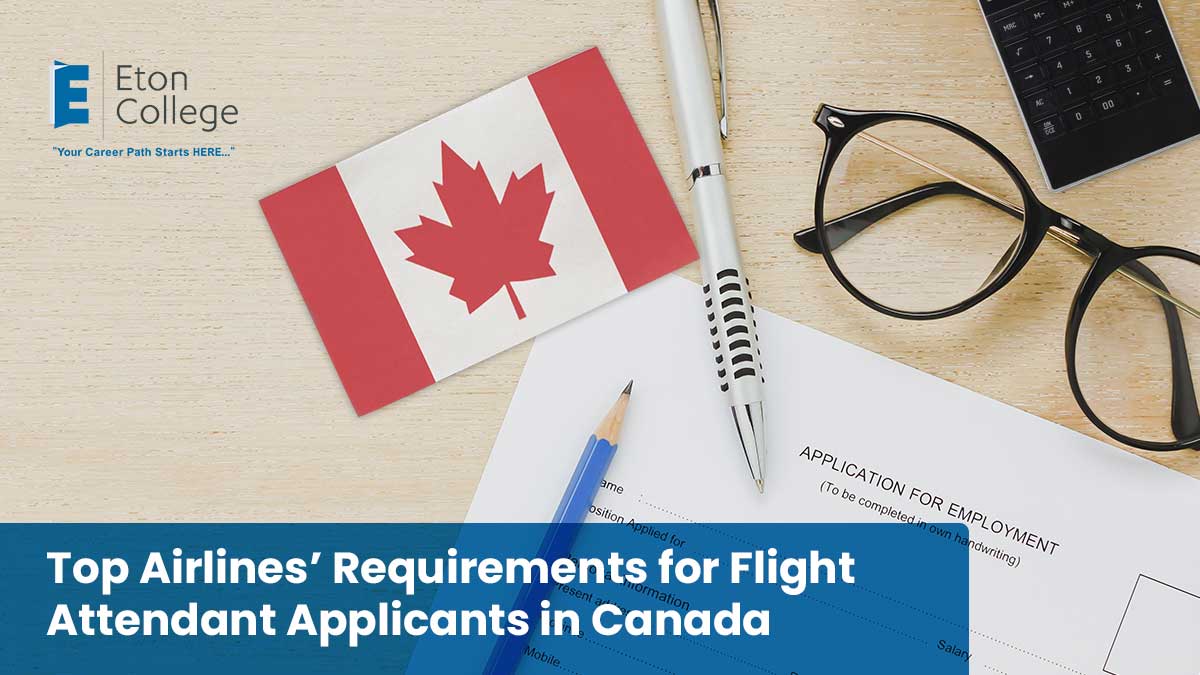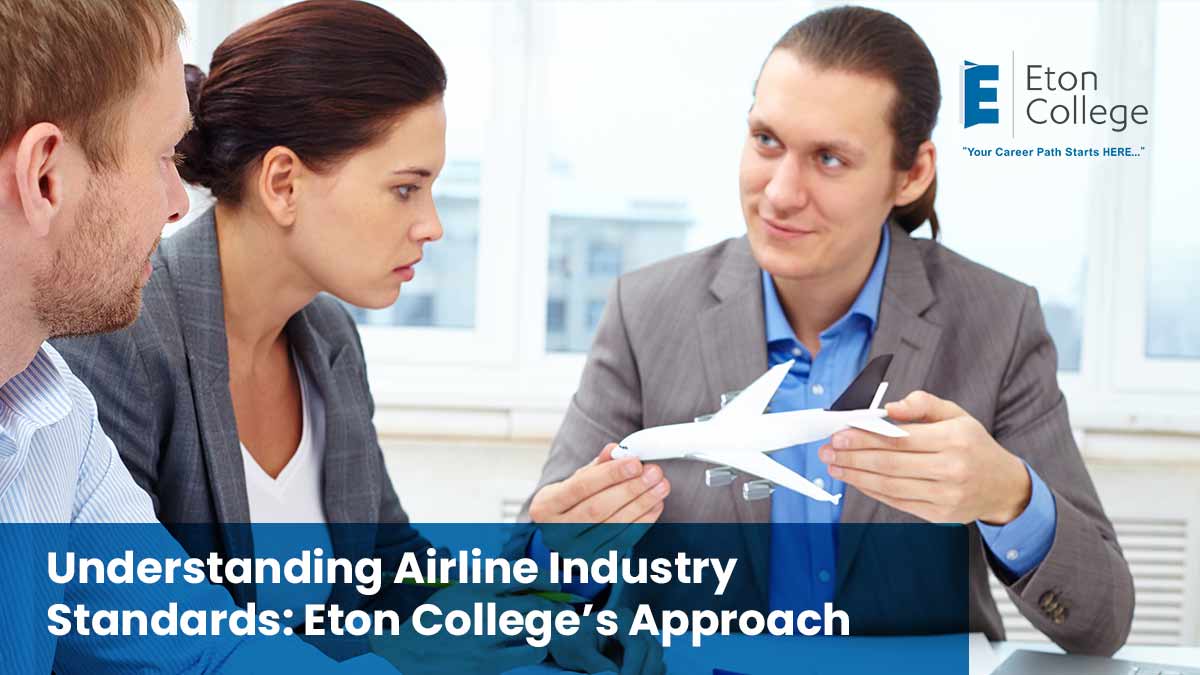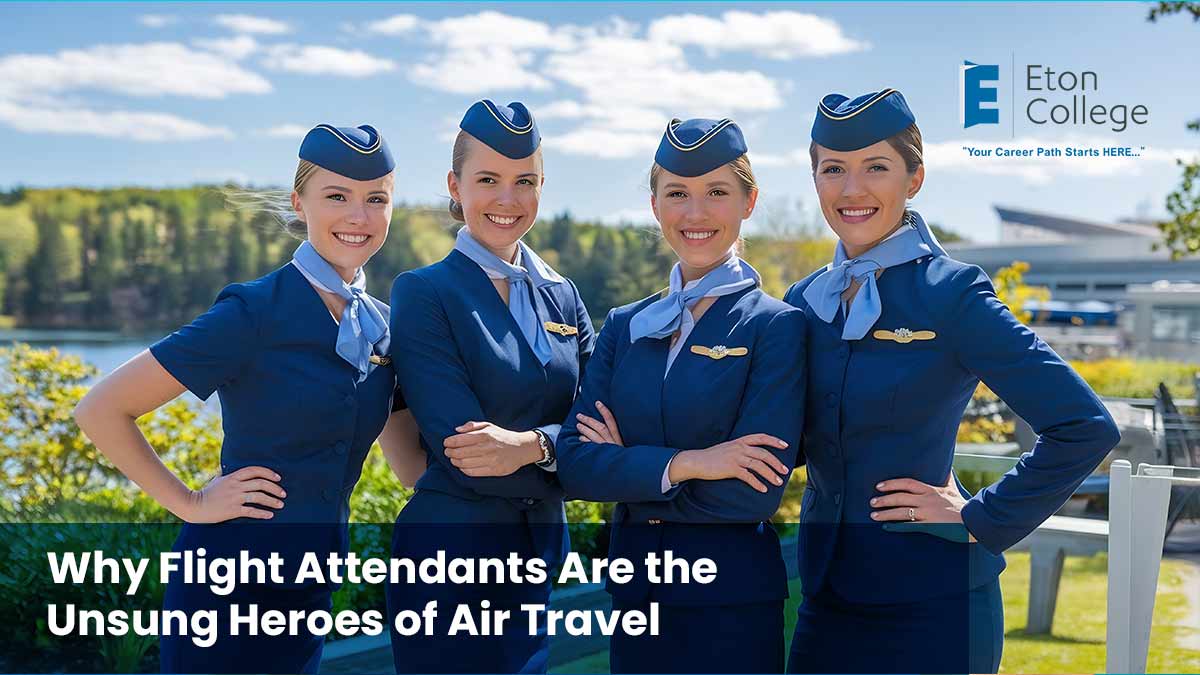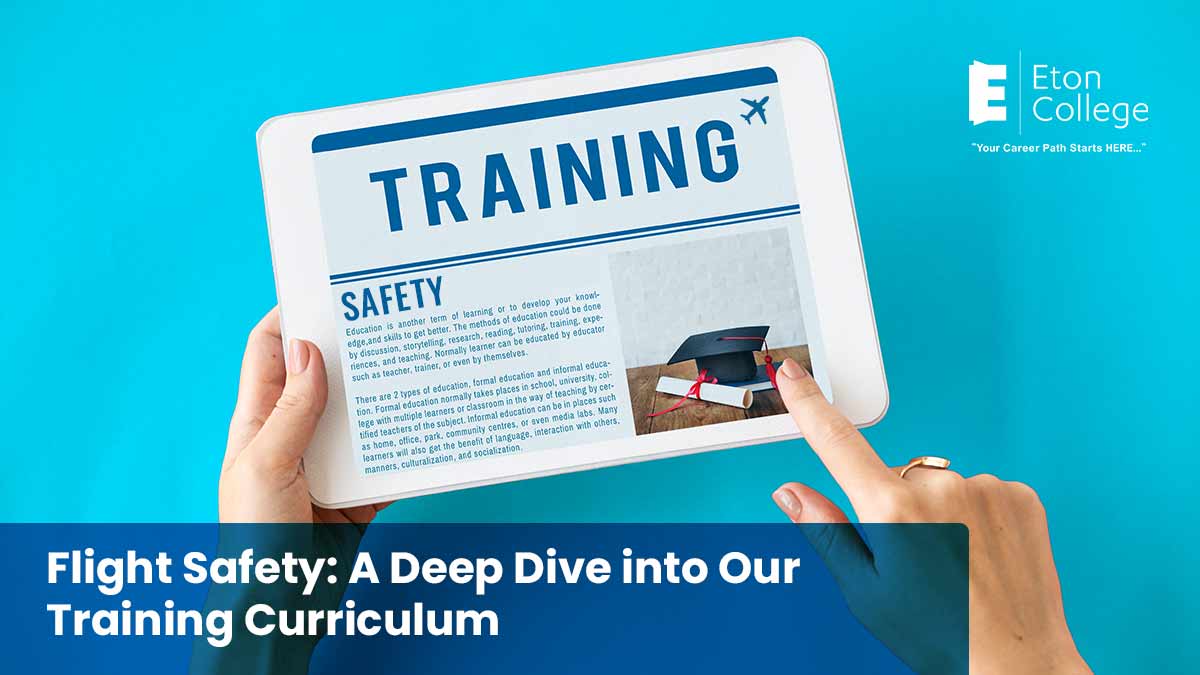- Bilingualism in English and French is highly preferred, especially by Air Canada, with additional language skills offering an advantage.
- Good health and vision are required, along with certification in First Aid and CPR.
- A valid passport and work eligibility in Canada are mandatory.
If you’ve always dreamed of flying high as a flight attendant, understanding the airline requirements for flight attendant roles is essential to standing out in Canada’s top airlines. Companies like Air Canada, WestJet, and Porter Airlines seek candidates who are adaptable, well-prepared, and customer-oriented. Knowing what airlines expect can give you an edge over the competition. Below, we explore the essential qualifications you need and how to make yourself a standout applicant.
1. Educational Background and Age Limits
To apply, airlines require at least a high school diploma or equivalent. However, many applicants enhance their resumes with post-secondary education in tourism, hospitality, or aviation-related fields. Some airlines value degrees or diplomas as proof of strong communication, service, or teamwork skills.
Applicants must also be at least 18 years old and, for some airlines, 19 years old. Meeting these educational and age requirements ensures you’re prepared to handle the responsibilities of the role.
2. Language Proficiency: The More, the Better
Proficiency in English and French is highly valued, especially for Air Canada, given its bilingual mandate.Knowing additional languages—such as Spanish, Mandarin, or Arabic—can also make you a highly attractive candidate. Airlines value crew members who can connect with international passengers and provide exceptional service regardless of the language barrier.
3. Physical Fitness and Health Standards
Flight attendants must meet specific height and reach requirements to manage onboard safety equipment (usually around 160-170 cm minimum reach). Additionally, applicants must pass medical examinations to ensure they are physically fit for tasks like lifting heavy luggage, standing for long periods, and assisting passengers in emergencies. Good health, including excellent vision (with or without corrective lenses) and the ability to swim unaided, is required.
4. Experience in Customer Service is a Plus
If you’ve worked in customer service roles—whether in retail, hospitality, or tourism—this will strengthen your application. Airlines prefer candidates who have experience working with the public, handling complaints, and delivering top-notch service under pressure.
Even if you lack direct airline experience, your ability to remain calm in stressful situations and think on your feet will set you apart.
5. Safety and First Aid Certifications
Airlines want candidates who are prepared to manage emergencies. While First Aid and CPR/AED certification is often required, completing these courses before applying will give you a competitive edge. During emergencies, passengers rely on flight attendants to stay composed and administer first aid if necessary.
6. Mastering the Written Exam and Interview Process
The flight attendant hiring process includes multiple stages, including a written exam, group interviews, and one-on-one assessments. Airlines look for candidates who excel in problem-solving, teamwork, and safety awareness through these evaluations.
If you’re looking to boost your chances of success, Eton College’s Flight Attendant Preparation Program can help you excel. This 14-week program offers targeted training, mock interviews, and hands-on experience to help students ace the airline requirements for flight attendant selection stages. From mastering the Flight Attendant Written Exam to building essential first aid skills, Eton College ensures you’re prepared for every aspect of the hiring process.
7. Valid Passport and Clear Background Checks
Airlines require flight attendants to have a valid passport and the ability to travel to all the destinations they serve. Applicants need to hold a valid Canadian passport or the right to work in Canada. Applicants must also undergo extensive background checks to ensure they meet the industry’s security standards. Criminal records, visa issues, or travel restrictions could affect eligibility.
8. Flexibility and Adaptability
Flight attendants need to be flexible with schedules—including night shifts, weekends, and holidays—since flight operations run 24/7. Airlines look for candidates who are adaptable, resilient, and open to irregular schedules. If you love spontaneity and adventure, this is the perfect career for you.
Being on-call is another part of the job, meaning you may be asked to fly at short notice. Successful flight attendants learn to balance their personal lives and work schedules effectively.
How Eton College Helps You Succeed in the Aviation Industry
Eton College offers a specialized Flight Attendant Preparation Program designed to align with airline expectations. This 14-week program equips students with essential certifications such as First Aid, CPR, and AED, and provides real-world training through airport visits and industry partnerships.
With Eton’s expert mentorship and mock interview sessions, students gain the skills and confidence needed to navigate the rigorous application process. The program also offers job placement assistance, connecting graduates with major airlines across Canada and beyond.
Your High-Flying Career Awaits
Meeting the requirements set by Canada’s top airlines can be challenging, but the rewards are worth it. From travel perks to exciting career growth opportunities, becoming a flight attendant opens the door to a world of possibilities.
You can transform your dream of working in the skies into reality. With a high job placement rate and expert mentorship, Eton College ensures that students are not only prepared but positioned for success. Whether it’s passing the Flight Attendant Written Exam, earning essential certifications, or excelling in interviews, Eton’s program equips you for every step of the process.
Don’t miss your chance to take off—start your journey toward a career that’s as exciting as it is rewarding.
Frequently Asked Questions (FAQ)
- What is the minimum educational requirement to become a flight attendant in Canada?
Most airlines require a high school diploma or equivalent to apply for flight attendant positions. - Do I need to be bilingual to work for Canadian airlines?
Proficiency in English and French is a significant advantage, particularly for roles with Air Canada. Additional language skills are also beneficial for international routes. - Are there any physical fitness requirements?
Yes, candidates must meet specific height and reach requirements to access safety equipment and demonstrate the ability to swim unaided. - Do I need prior experience in the airline industry?
Previous experience in customer service is often preferred but not mandatory. Some airlines, including Eton College’s partners, offer comprehensive flight attendant preparation to bridge the experience gap. - How can Eton College help me prepare for a career in aviation?
Eton College’s Flight Attendant Preparation Program offers essential certifications, such as First Aid and CPR, along with expert guidance on airline-specific requirements and Flight Attendant Written Exam Preparation. Graduates gain real-world experience and access to top airline partners, with a job placement rate of over 90%.




